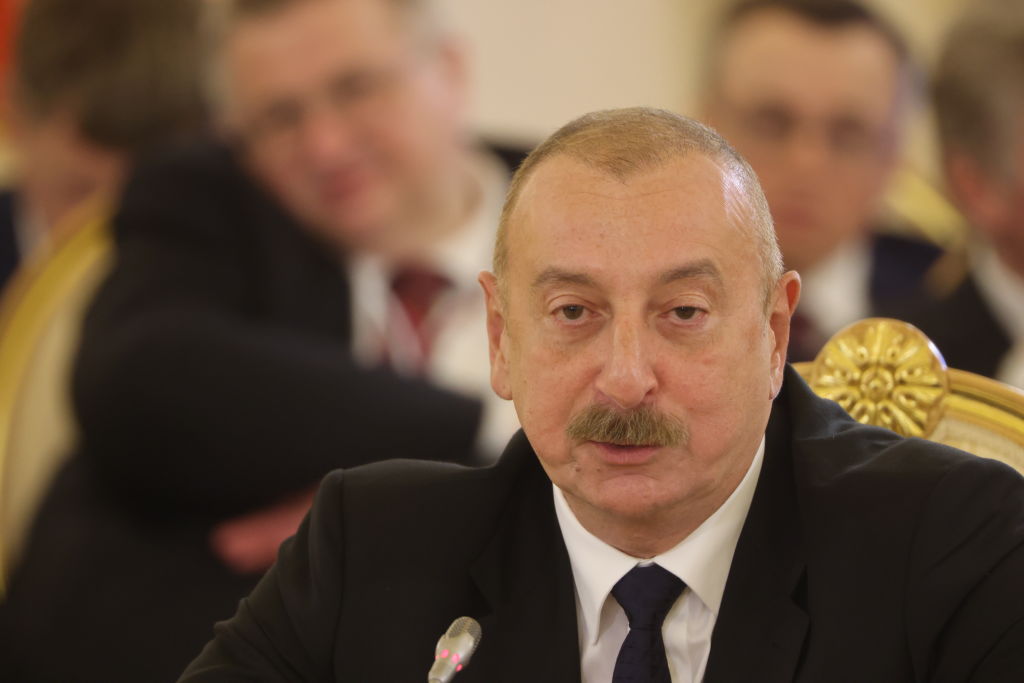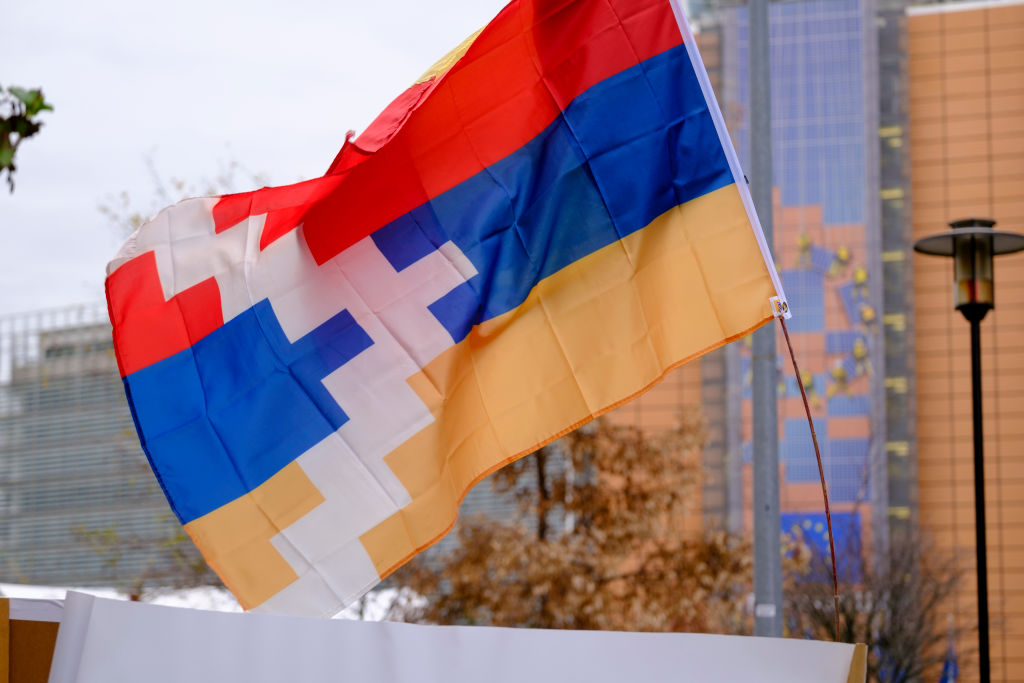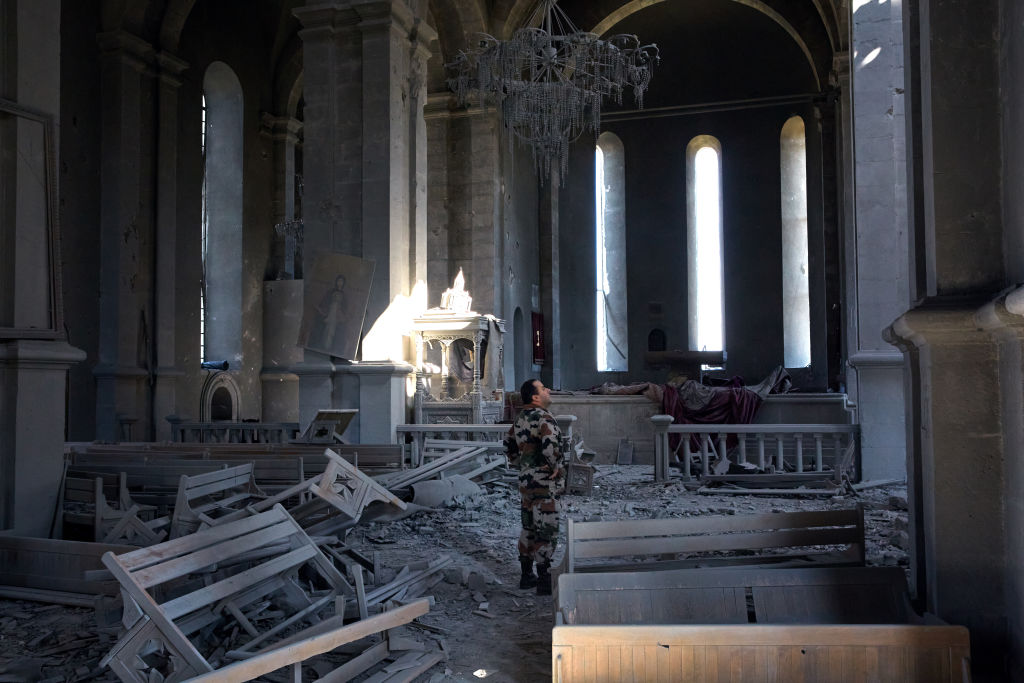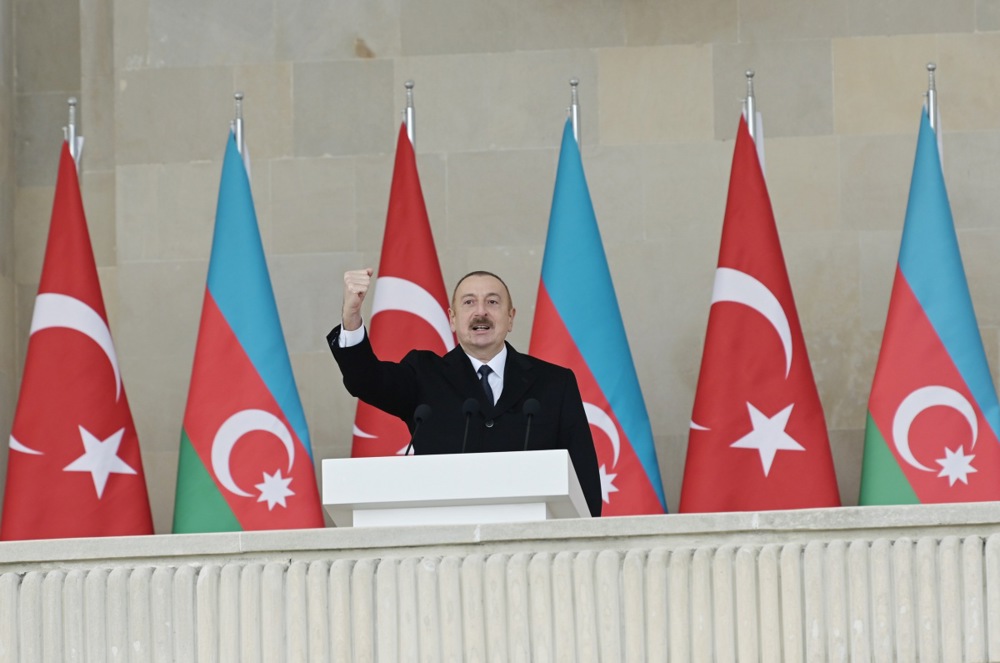After nine months of blocking the borders, Azerbaijan has allowed humanitarian aid into Nagorno-Karabakh.
A Russian truck, sent by the Russian Red Cross, entered via the Aghdam-Askeran route from Azerbaijan. Its counterpart, Azerbaijan’s Red Crescent, confirmed the arrival of the humanitarian aid.
Aghdam-Askeran is the only connection between the contested enclave and Armenia, as the Lachin Corridor route is completely blocked off. That is currently policed by Russian peacekeepers as part of a ceasefire agreement Moscow brokered between the ex-Soviet Caucasus nations in 2020.
Azerbaijan has said it wants to fully reopen the Aghdam-Khankendi and Lachin Corridor routes simultaneously.
Azerbaijan’s Ministry of Foreign Affairs said the delivery was “a positive step and important progress”, although it added that it came “against the backdrop of obstructions and provocations of the puppet regime created by Armenia”.
Russia’s foreign ministry said the shipment represented “a first step” in resolving the crisis, and that it expected the Lachin Corridor to be reopened “in the near future”.
Charles Michel, President of the European Council, said allowing the delivery via the Agdam-Askeran route was “an important step that should facilitate the reopening also of the Lachin Corridor”.
“This difficult situation on the ground has lasted for too long; it is now important to find sustainable and mutually acceptable solutions to ensure humanitarian access, also ahead of the autumn and winter seasons,” he added.
The diplomatic breakthrough happened just days after Armenia and the United States began a joint military training exercise. The 10-day “Eagle Partner” exercise started on September 11 and is designed to prepare the Armenians to take part in international peacekeeping missions.
Although not a major operation, Eagle Partner has ruffled feathers in Russia, which considers the region as firmly within its influence zone and which has a military base in Armenia.
On September 8, the Russian foreign ministry summoned the Armenian Ambassador to lodge a formal protest over the exercises and other moves by Armenia that it described as “unfriendly”.
Armenia has become increasingly dissatisfied with the role Moscow is playing and its apparent inability to help in the long-running conflict between it and Azerbaijan. Armenian Prime Minister Nikol Pashinyan is said to be increasingly tempted to turn to the West for help.
Armenia and Azerbaijan have been in conflict ever since the Soviet Union fell. The main issue is the enclave of Nagorno-Karabakh, located in Azerbaijan but inhabited by around 120,000 ethnic Armenians who don’t want anything to do with Azerbaijan.
It is administered by the Republic of Artsakh, which is not officially recognised but which receives support from Armenia. It was established in the 1990s as Armenian forces occupied the region following the initial Nagorno-Karabakh conflict that ran from 1988 to May 1994.
In 2020, Azerbaijani military forces launched a counteroffensive, effectively encircling the ethnically Armenian territory.
Authorities in Azerbaijan maintain that the region rightfully belongs to them and its residents are Azerbaijani citizens. They are resolute in their refusal to legitimise Armenian leadership within Nagorno-Karabakh.
Nagorno-Karabakh has been under a blockade imposed by Azerbaijani authorities since December 2022. Critics say this is leading to a humanitarian catastrophe, with some even warning of an “ongoing genocide”.
Two weeks ago, a French humanitarian convoy was blocked by Azerbaijan.





